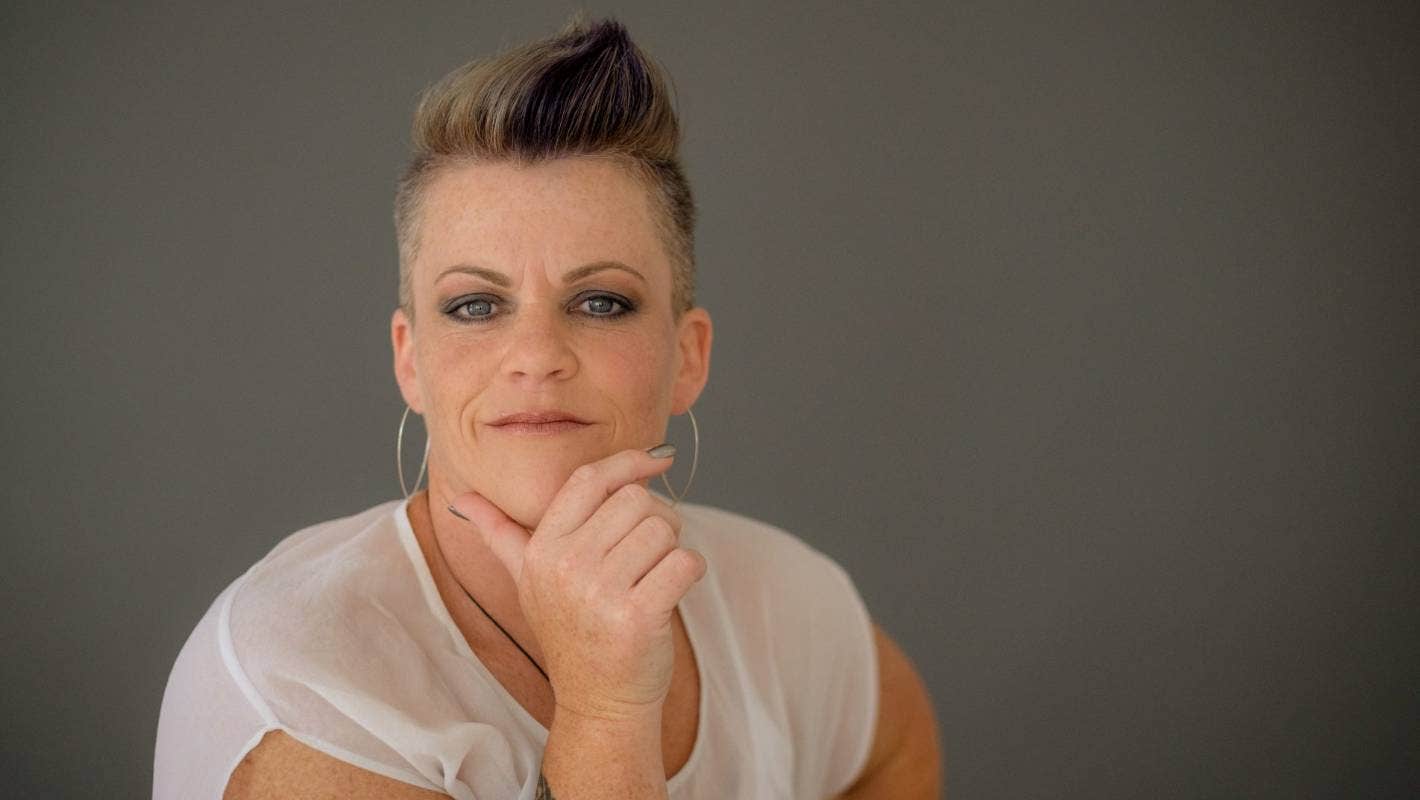
Lynda Moore calls herself the Money Mentalist combining accounting skills with psychology to help her clients get richer.
And clients pay $2500-$5000 for her services.
It’s a lot of money for people struggling to get ahead financially, though for many cashflow isn’t the problem.
They are often high-earners. Their issue is getting any of the money they earn to stick.
READ MORE:
* Searching for the ‘chunk of change’ that can make you wealthy
* How to pay off your mortgage in 10 years
* High incomes, awful finances: People for whom $100,000 isn’t enough
* Experts decry decade of missed mortgage opportunity
Lynda’s first-ever client, Shelly Davies, says the money spent facing up to the deep-seated beliefs that were holding her money life back were dollars well spent.

Davies is a successful business writer and trainer who earns her money teaching people at companies like Air New Zealand, BP, and Kathmandu to write effectively.
She had always earned “okay money”, but as her business took off, Davies was earning “better than okay money”, and still not getting ahead.
The traditional way of tackling that is to get some budgeting skills, or even employ a financial fitness trainer from a business like EnableMe which help people set goals and budgets, and stick to them.
But Davies says she didn’t lack for budgeting skills. There was something deeper driving her pay cheque to pay cheque money life.
One day Davies picked up a business magazine and saw an advert for the Money Mentalist.
“I thought, I have wanted this my whole life,” Davies says.
$5000 later, Davies found herself confronting the beliefs, including the sense that she was somehow not really a business woman.
And, she says: “I had a belief that there were good people and there were wealthy people, and they were separate groups with no cross over.”
Yes, it was ridiculous, she says, but it was deeply held.
She also found herself understanding that her spending was often directed at making other people happy allowing her to live her values in the short term, but seriously limiting her ability to live them sustainably in the long-term.
But there was something else. She was undervaluing herself and her skills.
Davies found this refreshing.
“Every time I had sought out help, it was always about a scarcity mentality. Lynda was immediately about an abundance mentality.”
The money she spent with Lynda, she recouped within months by lifting her fees to the level that reflected their real value, ending her habit of unprompted “discounting”.
She’s also much better at saying ‘no’ when the money, or the client is not right.
“People come to me because they recognise they aren’t doing as well as they should be,” Moore says. “Some come to me after looking at their circle of friends, saying ‘How come they have a bach?’ and ‘Why haven’t we?'”
Hers is a “can do better” market, she says.
Often it is a birthday that causes people to pause and think about the wealth they have amassed, or the lack of it.
They suspect there is something wrong with their relationship with money, and they are often right.
“Beliefs drive your behaviour, and behaviour drives your results,” Moore says.
Often it is couples she works with. Sometimes couples simply don’t talk about money. Others often shout about it.
Moore says she undertook her own money journey when she got into a very dark place after a marriage break-up.
She had the number skills from her accounting work. The missing piece was understanding what drove her behaviour.
She studied money psychology under psychiatrist Dr David Krueger MD in Houston, and found the answer there, as well as a business opportunity.
There are enough people willing to pay, even though Davies is convinced in Kiwi culture, seeking anything that feels like “counselling” is often seen an admission of weakness.
When people first make contact, Moore asks them to complete a 20-question online test to gauge whether they fit into one of five money “personalities”- Amasser, Money Monk (people who basically equate money with evil), Spender, Avoider or Hoarder.
Moore says people have a primary money personality, and also a secondary, so you could be a Money Monk with a dash of Avoider, or a Hoarder with a touch of Amassor.
“I’m a spender,” says Moore. “I was very good at it.”
“I still really enjoy spending, but I think about it a lot more. These days I am leaning more towards being a hoarder.”
HOW THE REPORTER SCORED
Rob Stock, the author of this article, did the money personality test. The result was fairly conclusive as to which of the five primary money personalities (Amasser, Money Monk, Spender, Avoider or Hoarder) he had.
“For you, money = security,” the automated conclusion came back within seconds.
“You tend to be a Hoarder, you like to save money. You also like to prioritise your financial goals. You probably have a budget and may enjoy the processes of making up a budget and reviewing it periodically.
“You most likely have a hard time spending money on yourself and your loved ones for luxury items or even practical gifts. These purchases would seem frivolous to you. You might very well view spending money on entertainment and on holidays – and even on clothing – as largely unnecessary expenses.”
“If you think about investing your money, you tend to be concerned not with liquidity but with future security, especially during retirement.” “Saving for a rainy day appeals to your orderly nature.”
Simon Lempriere from Money Mentalist sent across an email a few minutes with my secondary money personality later.
“Your primary Money Personality is a Hoarder, and your secondary is an Amasser. A decisive outcome, two of the other three didn’t get a mention!”
But he had this warning: “You have to be careful that you don’t get too far into the Hoarder space and become a bit too much of a scrooge and not enjoy the money you have accumulated.”
stuff.co.nz/business/money/95521791/who-pays-a-money-psychologist



